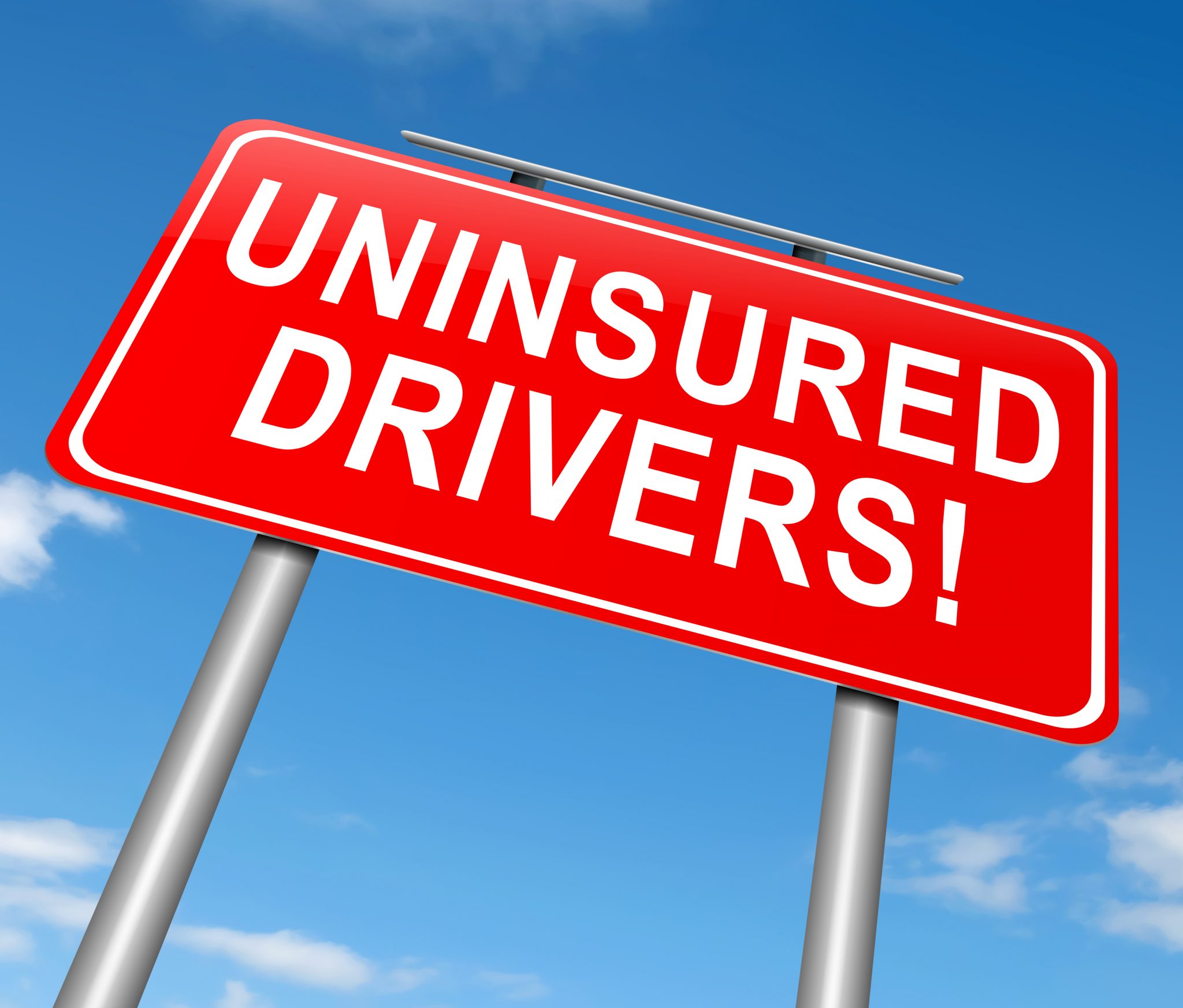- WE’RE HERE TO HELP 24/7
- 800.586.5555
What Is Uninsured Motorist Coverage and Should You Get It?

Who Is Liable for Self-Driving Car Accident?
December 11, 2019
How Liable Are the Vaping Companies and Can They Be Sued?
December 11, 2019What Is Uninsured Motorist Coverage and Should You Get It?

Uninsured motorist coverage isn’t required in Florida, but it’s often not a bad idea to sign up for it. However, many people who purchase this additional coverage may not realize that its provisions only apply to physical injuries for passengers in your vehicle, not for any damage to your car itself.
You’ll need to have adequate collision coverage to make sure your vehicle can be replaced in the event you’re in an accident with a driver who has no insurance or is underinsured.
What Will Uninsured Motorist Coverage Pay for in the Event of an Accident?
Uninsured motorist coverage is relatively comprehensive when it comes to the affects an injury can have on your life or the life of any injured passengers. It should pay for:
- Medical and rehabilitation costs
- Any wages you lose due to being unable to work
- Loss of future enjoyment of life, such as a situation where you can no longer do the things you love due to a disability
- Long-term care and any medical devices injured parties may require
- Pain and suffering
- Services you can no longer do for yourself, like yard work or house cleaning, as well as retrofitting your house if an auto accident results in a disability that limits your mobility
Shouldn’t Insurance Cover These Things Anyways?
Not necessarily – in Florida the minimum auto insurance coverage required won’t go a long way in the event of a serious accident that has long lasting ramifications on your life. Here’s what Florida requires at a minimum for drivers:
- Property damage coverage: $10,000 per accident
- Personal injury protection: $10,0001
This personal injury protection (PIP) is for you, not the other driver. It will cover 80 percent of your medical bills and 60 percent of lost wages, up to $10,000, and provides a $5,000 death benefit in the case of the driver’s death.
Why Does Uninsured Motorists Insurance Matter in a No-Fault State Like Florida?2
In a no-fault insurance state, you essentially must rely on your own insurance to pay for your medical and property damage costs. If you have the minimum $10,000 property damage coverage, you’ll only be able to get $10,000 for your vehicle damage, even if your car is worth much more at the time of the accident.
Essentially, what uninsured motorist coverage gives you in a no-fault state like Florida is the ability to get money for the long-term costs of injuries – like pain and suffering, future long-term care and medical devices, home-enhancements and lost wages due to your injury.
You have to carry a minimum of $10,000 of personal injury protection, but that will only pay for your immediate treatment and lost wages – it won’t pay for the long-term costs.
If you add bodily injury liability insurance to your auto insurance coverage in Florida, you will be given uninsured motorists coverage as well unless you intentionally opt out. If you don’t want to add uninsured motorist coverage you actually have to make a written rejection of the coverage.
This coverage can also be stacking for each vehicle you have insured. For example, if you have $10,000 per person and $30,000 per accident of uninsured auto insurance for three vehicles in your household then you’d essentially have access to $30,000 per person and $90,000 per accident of coverage.
Again, all these options – including the stacking feature and the coverage itself – are not required. You have the option to choose lower limits for your bodily injury and uninsured motorist coverage for lower premiums, but it will leave your family vulnerable to the costs of long-term disability in the case of an auto accident injury.
How Can You Sue Another Driver in a No-Fault Insurance State?3
If every driver must rely on their own insurance to pay for vehicle repair or replacement and medical costs after an auto accident, you may be wondering why it’s possible to sue any other driver, even if they were being negligent and caused an accident.
Although Florida is referred to as a “no-fault” state, the designation is somewhat of a misnomer. There are no true no-fault states in the United States. Even in a no-fault state like Florida you can still sue if the damages caused to you by the negligent driver exceed certain thresholds.
For example, if you are involved in a serious auto accident, you have only minimum coverage and the other driver is at fault, your PIP would cover 80 percent of your medical bills up to $10,000. If your medical costs ended up being $25,000 you may be able to make a personal injury claim against the other driver for the additional $15,000 your personal injury protection didn’t cover.
In the same scenario, if you had uninsured motorists’ coverage, it would help offset those costs without needing to go the lawsuit route, but it all really depends on the extent of your injuries. With emergency room visits and even just a couple nights in the hospital costing injury victims tens of thousands of dollars, it’s all too common for the victims of negligence to find themselves in a situation where their Florida auto insurance isn’t adequate to getting them the care they need to recover or pay for long-term expenses.
